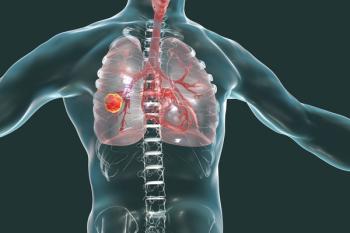
5 Questions on Small-Cell Lung Cancer
Among patients with SCLC, what characterizes never smokers? What effect did bevacizumab have when added to standard of care? Test your knowledge in our latest quiz.
Among patients with small-cell lung cancer (SCLC), what characterizes never smokers? What effect did bevacizumab have when added to standard of care? Test your knowledge in our latest quiz.
Question 1
Answer
A. 2 to 4 months. From the start of treatment, only about 10% of SCLC patients will remain free of disease at 2 years, according to the National Cancer Institute’s treatment
Question 2
Answer
B. Extent of disease. The National Cancer Institute’s treatment
Question 3
Answer
C. Pravastatin. The
Question 4
Answer
B. Improved progression-free survival. Median progression-free survival times were 5.7 months in the arm without bevacizumab and 6.7 months in the arm with bevacizumab (P = .030). Although the
Question 5
Answer
D. All of the above. Among the never smokers, prognosis was relatively favorable, and overall survival was statistically longer than that of smokers, according to the
Newsletter
Stay up to date on recent advances in the multidisciplinary approach to cancer.





































